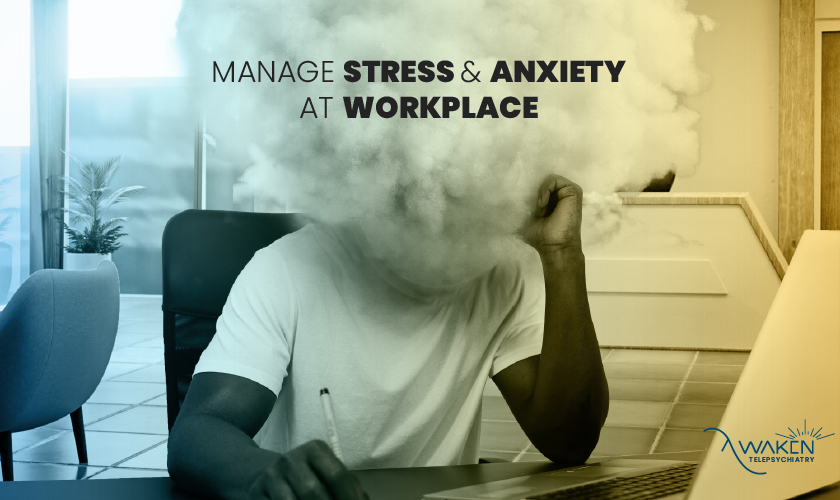The modern workplace often has its fair share of stress and anxiety, impacting employee well-being and productivity.
Balancing deadlines, performance expectations, and interpersonal dynamics can drain our mental energy.
The right mindset and approach can help you get past these difficulties.
You can take action on these issues to make the work environment healthier and more fulfilling for you.
Our goal in this blog post is to help employees cope with work stress, promote their well-being, and make them happier at work. Also, check out all our services.
How to Deal With Work Anxiety
1. Recognize and understand your triggers.
Identifying your triggers is an essential first step to managing stress and anxiety.
Think about situations or stuff at work that consistently makes you anxious or stressed.
Once you identify these triggers, you can develop strategies and ways to deal with them.
2. Create a supportive network for yourself.
Having a support network can be helpful when you are facing stressful times at work.
Confide in colleagues or supervisors who are understanding and empathetic about your concerns.
If you share your struggles with others who can relate, you may be able to relieve some stress and anxiety.
3. Make improvements to your work environment.
The physical work environment can make a big difference in reducing stress and anxiety levels. Look at your office space and make some improvements in a way you like.
- Use a pleasant and uplifting color scheme that creates a positive atmosphere.
- Add greenery and plants to improve air quality and add enjoyable and calming vibes.
Minor changes to the office environment can be beneficial and reduce your work performance anxiety.
4. Self-care is a must.
Outside of work, you need to take care of your physical and mental health.
Exercise regularly, maintain a healthy and balanced diet, and get enough sleep each night.
Also, include activities you enjoy in your routine, such as hobbies or spending time with loved ones, to recharge yourself.
5. Set boundaries.
You must set clear boundaries between work and personal life to prevent burnout and reduce work-related anxiety.
Learn to disconnect from work during your downtime and set aside time for relaxing and rejuvenating activities.
It allows you to recharge and approach your work with a fresh mindset.
6. Practice mindfulness.
Including mindfulness and relaxation practices in your daily routine can help you cope with work-related anxiety. Take our mindfulness and meditation service.
If you can’t work due to anxiety and depression, try yoga, deep breathing, meditation, and visualization exercises – these can help you achieve relaxation and improve focus and mental clarity.
Throughout the day, take short breaks to practice these techniques and reset your mind.
7. Seek help if you need it.
If the stress and anxiety persist and negatively impact your daily life, it may be beneficial to seek professional help, especially if you’re having panic attacks at work.
You can try therapy for work stress – psychologists and therapists can help you develop healthy coping mechanisms that work for you.
They can also determine if an anxiety disorder or other mental health condition requires treatment. Click here for our mental health service.
Conclusion
Fear of going to work and anxiety is a recurring problems for many people. The best way to get over this and create a healthier work-life balance is to take the right steps.
Contact us at Awaken Telepsychiatry if work-related stress is taking over your life. If you need help overcoming these obstacles, we can help.




No comment